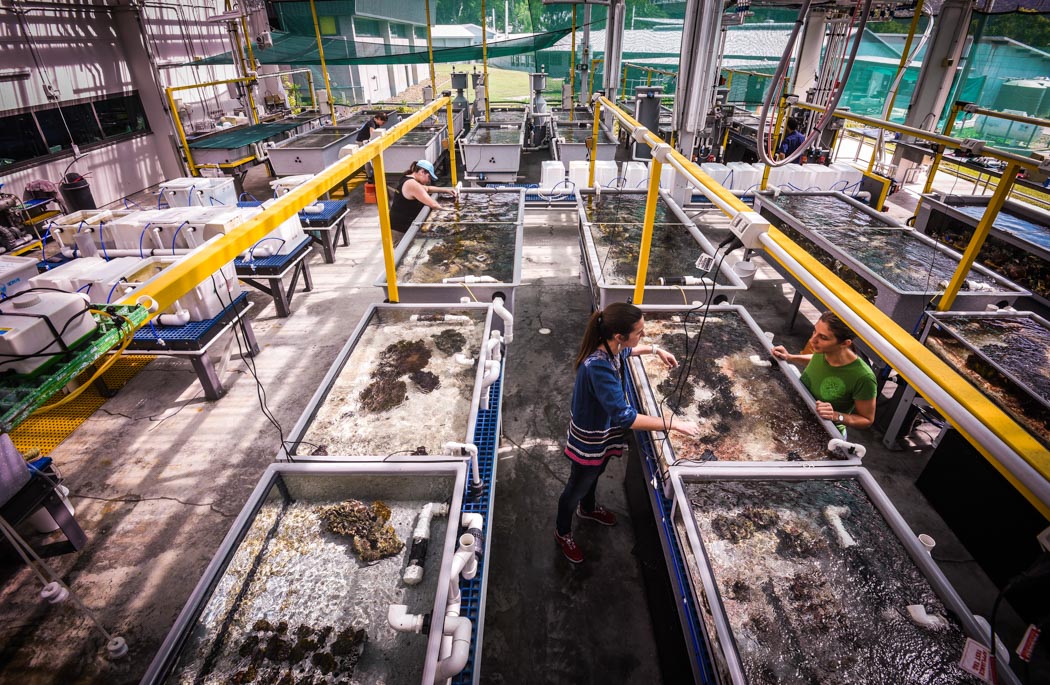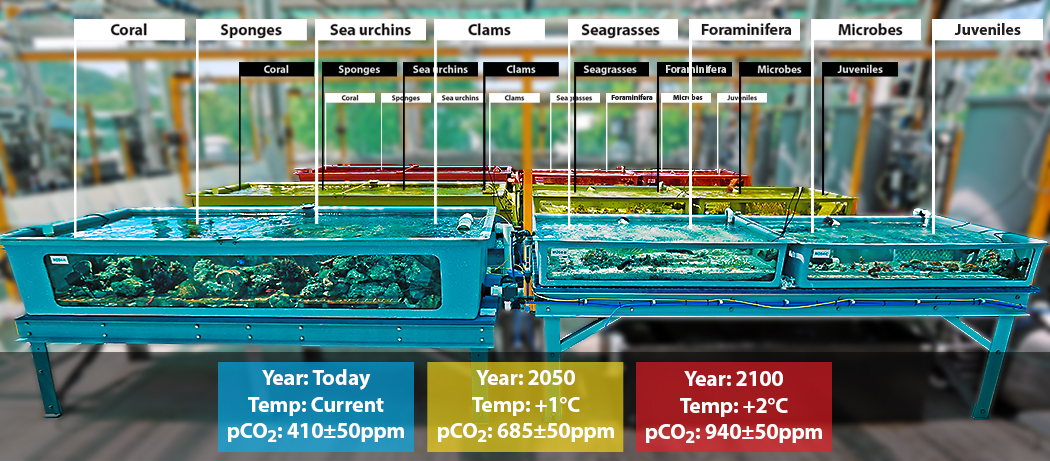‘Evolution 21’ is a large multi-disciplinary study, improving our understanding of the capacity of a range of coral reef organisms to evolve under climate scenarios predicted for the 21st century.
Hosted in the National Sea Simulator (SeaSim), this unique project is tracking genetic (via adaptation) and non-genetic (via acclimatisation) responses in corals, sponges, echinoderms, molluscs, seagrasses, foraminifera and other taxa under today’s climate conditions, and those predicted for the years 2050 and 2100. ‘Evolution 21’ is also examining the role of microbial symbionts in the adaptation and acclimatisation of reef species and their potential to influence the rate of evolution.
To achieve a whole-of-system approach, study organisms are held together in nine large, mesocosm systems, effectively simulating natural conditions and interactions. Conditions in the mesocosms are finely regulated using SeaSim’s sophisticated control system technology.
‘Evolution 21’ is a 5-year, multi-generational study. As adaptation and transgenerational acclimatisation occur through changes passed from one generation to the next, multiple generations must be studied. However, the time to sexual maturity varies greatly between organisms. Some species only reproduce once a year and some require 2-3 years before they become sexually mature. The long-term nature of the project will provide novel insights into the mechanisms that these longer-lived organisms rely on to deal with climate change.
Results from ‘Evolution 21’ will be used to refine predictive models of reef resilience under future climate scenarios and to identify potential opportunities for supporting natural adaptive processes.
‘Evolution 21’ is possible because of SeaSim’s unique capabilities:
- Support for true multi-factorial design: Nine independent experimental reef communities are held in large systems within SeaSim’s extensive outdoor aquarium space. There are three replicates for each of the three climate scenarios - today’s conditions, and conditions predicted for the years 2050 and 2100. Suitable space is provided for true replication and to house multiple generations of each reef species. Each tank is completely independent and maintained by its own dedicated controls system, providing precise control over all experimental parameters.
- Ability to simulate future climate scenarios: Water temperature and pCO2 can be finely controlled (within ±0.1°C for temperature and ±20 ppm for pCO2) using SeaSim’s sophisticated controls systems. Seasonal temperature cycles are based on the long term average (15yrs) for nearby Davies Reef.
Climate scenarios are as follows:Current Climate Year 2050 Year 2100 Temperature Current
(Davies Reef 15yr average)+1°C offset
+2.0°C offset
Diurnal pCO2 410±50 ppm 685±50 ppm 940±50 ppm -
Around-the-clock monitoring and alarming: ‘Evolution 21’ will continue for at least 5 years which allows for the study of long-term changes in organisms across multiple generations. Around-the-clock system monitoring provides project security, and expert knowledge from SeaSim staff ensures high level system maintenance.
‘Evolution 21’ is a multi-institution collaborative project funded by the Australian Institute of Marine Science and Marsden Research Funds.



